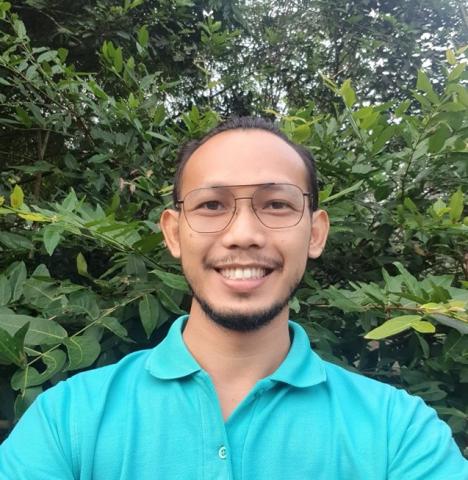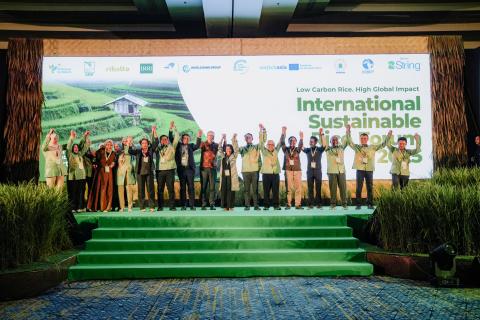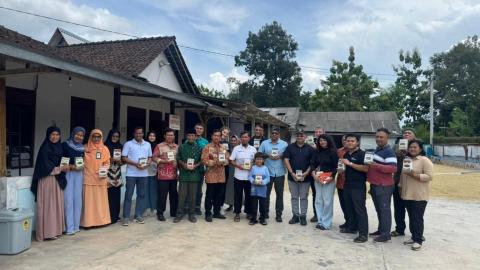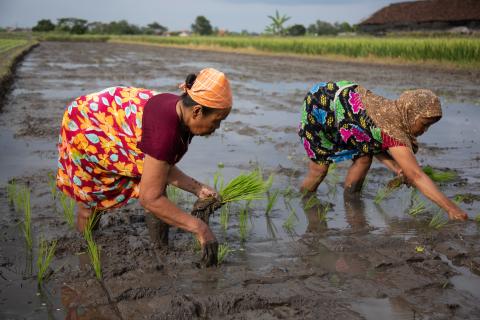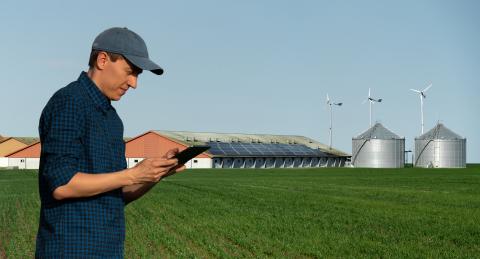Indonesia's Low Carbon rice project leads the way in sustainable rice production
In Java, Indonesia, the transformative Low Carbon Rice project, led by Preferred by Nature and supported by the EU's SWITCH-Asia Grants Programme, is tackling the environmental challenges of rice production.
In Java, Indonesia, the transformative Low Carbon Rice project, led by Preferred by Nature and supported by the EU's SWITCH-Asia Grants Programme, is tackling the environmental challenges of rice production.
The project collaborates with Indonesian organisations like Koalisi Rakyat Untuk Kedaulatan Pangan (People’s Coalition for Food Sovereignty – KRKP) and Perkumpulan Penggilingan dan Pengusaha Beras Indonesia (Indonesia Rice Millers and Traders Association -PERPADI). Through these collaborative efforts, the project aims to mitigate the substantial climate impact of rice production.
Rice is essential for half the world's population but is a major contributor to global warming, responsible for about 2.5% of all human-induced greenhouse gases, equivalent to global aviation emissions. Particularly, it accounts for 12% of the world's methane emissions due to anaerobic processes in cultivation.
Climate action
The initiative focuses on reducing the climate impact through sustainable practices and policy dialogues with Indonesian authorities, enhancing sustainable rice production capacity.
Rice millers in Java confront challenges such as limited financial access, lack of sustainable rice production knowledge, and difficulties in finding the balance between production cost and fair price for sustainable rice. The project assists 150 small-scale rice millers in East and Central Java, along with the farmers and broader Indonesian and global community, including government, private and financial sectors.
Sustainable agriculture model
Indonesia, the third-largest rice producer, faces climate change impacts like extreme weather and environmental degradation due to excessive agrochemical use. The project seeks to develop sustainable production policies, governance models, market access, finance opportunities, and effective communication of progress. Key activities include educating millers on sustainability, providing targeted capacity building, aiding in the transition to sustainable rice milling, and facilitating new market and finance mechanisms.
The expected outcomes are diverse: more efficient and productive rice milling, increased production of climate-friendly rice, and significant contributions to reducing global warming.
Ultimately, the Low Carbon Rice project is not just an agricultural endeavour but a comprehensive approach that combines environmental sustainability, economic viability, and social responsibility. It strives to make rice production in Indonesia and globally sustainable and climate resilient.
Reduced emissions: Significantly lowers greenhouse gas emissions from rice production contributing to global climate change mitigation.
Economic and social benefits: Improves the livelihoods of small-scale rice millers and farmers through enhanced productivity and market access, fostering economic stability and social welfare.
Environmental preservation: Promotes sustainable rice production practices, reducing the ecological footprint of rice production and safeguarding water quality and ecosystem health.
